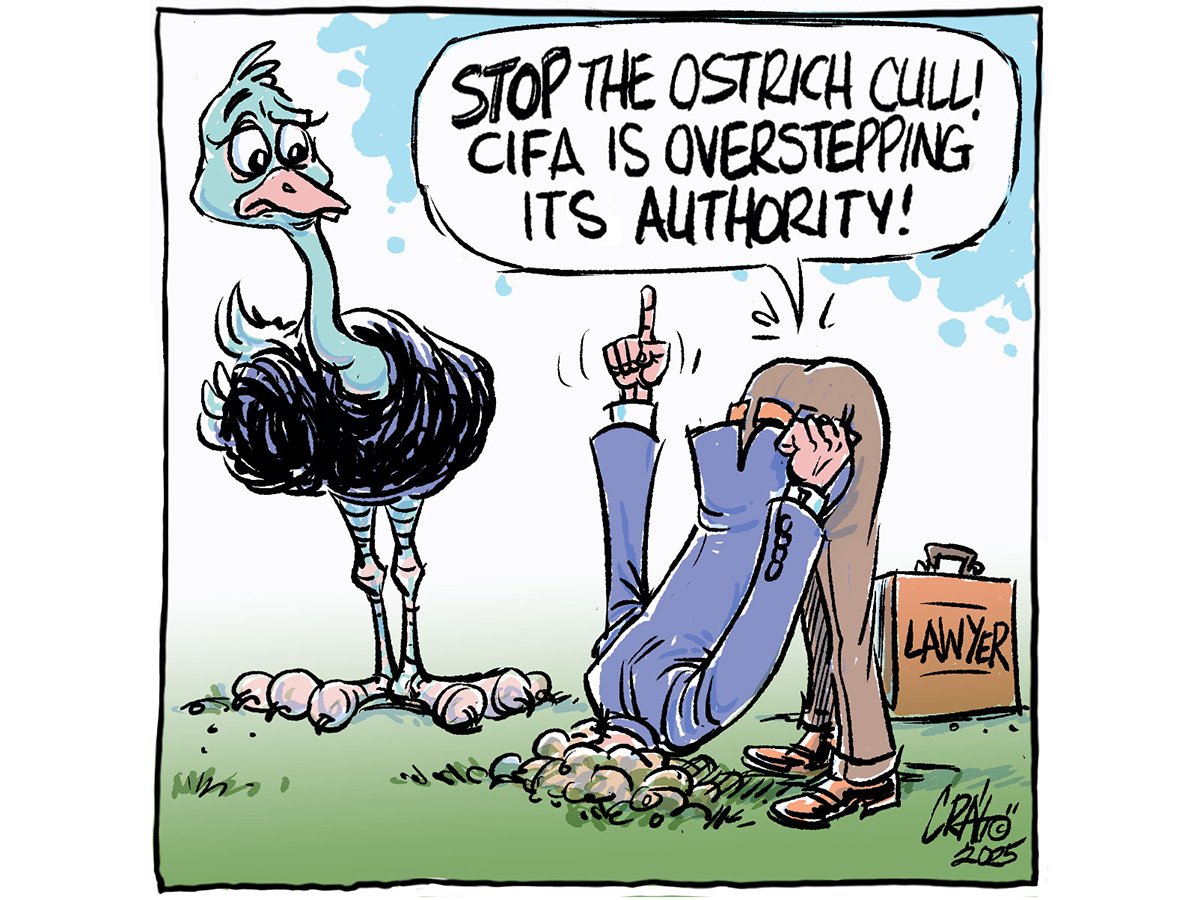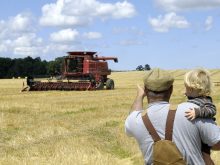Having done journalism in both urban and rural markets, I can unequivocally say that much like governance, it is much harder in the latter, at least when it comes to the “nowhere to hide” factor.
That feeling was once again emphasized when I attended a municipal candidates forum in Alberta for both the Town of Taber and the Municipal District of Taber.
Often, many candidates in rural jurisdictions are acclaimed, with no one running against them, but not this time. There were two candidates for mayor and 11 running for six seats on Taber council. The MD had multiple seats contested as well. It shows a keen interest in democracy, but also a sign of discontent.
Read Also

The Canadian Food Inspection Agency’s animal health efforts require producer support
Livestock producers should be concerned by how an ostrich farm is using crowd funding to help it defy a Canadian Food Inspection Agency order to destroy more than 300 birds.
Municipal councils have come under fire for a variety of reasons: land sales, conservation, green spaces, ranchers versus irrigators, affordable housing and government spending. I have been covering some of it from an agriculture angle — native grasslands being converted into irrigated land as grazing leases expire and aren’t renewed.
You are not going to please everyone in the world of politics — it’s the nature of the beast. What politicians give to one part of the electorate is not being given to another set of voters.
Journalists report on these conflicting interests in hopes of offering a voice to both sides. Regardless, many consider a story to be slanted if it does not align with their own beliefs.
Large urban areas provide a degree of insulation from this, but in rural areas, the people affected by the controversial decision you made or the story you wrote are often lining up behind you at the grocery store.
You may have kids together in 4H, coaching them in sports or attend the same church. You travel in common friend circles or volunteer together for the betterment of your community.
You see first-hand the impact your profession or civic duty has on people, for better or for worse.
It’s a rawness that is both a blessing and a curse. The grass-roots impact you are able to make at a rural level, which the odd time may even have provincial, national or even international implications, are very visible.















